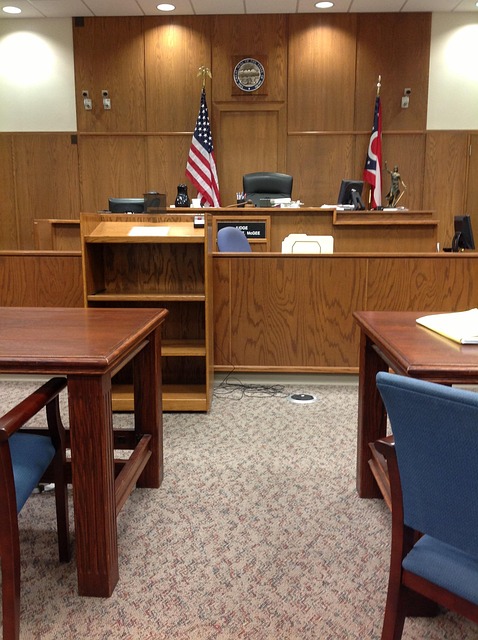In Oregon, state law protects grandparent's legal rights to maintain connections with grandchildren, including court-ordered visitation and decision-making privileges. Grandparents can consult family law attorneys specializing in these relations to navigate regulations, resolve disputes, and protect their bonds. Legal actions like filing for visitation or custody are pursued when parents deny access, considering the child's best interest. Oregon laws prioritize familial connections, allowing grandparents to enforce healthy relationships with grandchildren through legal recourse. Staying informed about legislative changes ensures grandparent rights adapt to modern family structures.
In Oregon, grandparent rights and visitation laws play a crucial role in fostering familial connections. Understanding these legal frameworks is essential for grandparents seeking meaningful time with their grandchildren. This article provides an in-depth overview of grandparent rights in Oregon, exploring the state’s laws, establishing relationships, addressing challenges, and available legal recourse. By delving into these aspects, we aim to empower grandparents to navigate the legal landscape and secure their rightful place in their grandchild’s life.
- Understanding Grandparent Rights in Oregon: An Overview
- Legal Framework: Oregon's Laws on Grandparental Visitation
- Establishing Grandparent-Grandchild Relationships
- Challenges and Disputes: What to Do If Rights Are Denied
- Enforcing Grandparent Visits: Legal Recourse and Support
- Future Changes: Predicting Evolving Grandparent Laws in Oregon
Understanding Grandparent Rights in Oregon: An Overview

In Oregon, grandparent rights are recognized and protected under state law, offering a measure of security for extended family connections. Grandparents have legal rights that allow them to maintain a relationship with their grandchildren, subject to certain conditions. The primary focus is on ensuring the well-being of the child while also honoring familial bonds. These rights can include visitation, custody, and decision-making privileges, all of which are governed by specific Oregon laws.
Understanding these legal rights is crucial for grandparents who wish to spend time with their grandchildren and play an active role in their lives. The state’s guidelines outline the procedures for asserting these rights, including petitioning the court for access when necessary. By familiarizing themselves with the law, grandparents can navigate the system effectively, ensuring their place within the family structure while adhering to Oregon’s legal framework.
Legal Framework: Oregon's Laws on Grandparental Visitation

In Oregon, grandparent’s legal rights are protected by state laws that govern family relationships and custody matters. The legal framework provides a structured approach to grandparental visitation, ensuring that these precious connections between grandparents and grandchildren are preserved and facilitated. Grandparents in Oregon have the right to seek court-ordered visitation if they wish to spend quality time with their grandchildren.
The state recognizes the importance of family bonds and has implemented laws that allow grandparents to petition for specific visitation schedules. These legal rights ensure that grandparental relationships can thrive, offering stability and joy to both generations. The process involves filing a petition in court, which may consider various factors to determine what is in the best interest of the child, ultimately fostering a healthy and nurturing environment for all involved.
Establishing Grandparent-Grandchild Relationships

In Oregon, establishing a grandparent-grandchild relationship involves understanding and asserting legal rights. Grandparents in Oregon have specific legal rights that allow them to maintain significant involvement in their grandchild’s life, even if they do not have physical custody. These rights include the ability to visit, communicate, and contribute to the child’s well-being, subject to certain restrictions and court orders.
To establish and protect these rights, grandparents should consider consulting with a family law attorney who specializes in grandparent rights. Legal counsel can guide them through the process of petitioning for visitation or custody, if necessary, and ensuring their relationship with the grandchild is legally recognized and respected.
Challenges and Disputes: What to Do If Rights Are Denied

When it comes to understanding and protecting their legal rights as grandparents in Oregon, challenges and disputes can arise if access or visitation is denied by parents or other legal guardians. In such cases, it’s crucial to take proactive steps to resolve these issues amicably, or if necessary, through legal avenues. Grandparents should first attempt to initiate open dialogue with the family members in question, expressing their desire to maintain a relationship with their grandchildren and seeking a mutually agreeable solution.
If discussions fail, consulting with an experienced attorney specializing in family law is advisable. They can guide grandparents on how to navigate the complexities of Oregon’s legal system, which has specific regulations regarding grandparent rights. Depending on each unique situation, legal actions such as filing for visitation or custody rights may be appropriate. The goal is to ensure that grandparents’ bonds with their grandchildren are protected and supported by the law.
Enforcing Grandparent Visits: Legal Recourse and Support

In Oregon, ensuring grandparent visitation rights can be a complex process, but there are legal avenues to enforce and protect these relationships. If a grandchild’s parents are unwilling to facilitate meaningful time with their grandparents, the latter can explore various legal options. A common approach is to file a motion in court for reasonable visitation or custody, presenting evidence of the beneficial impact on the grandparent-grandchild relationship. This process often requires the assistance of an attorney specializing in family law, who can guide grandparents through the legal system and advocate for their rights.
Oregon laws recognize the importance of familial bonds and have established guidelines to support grandparent visitation. Grandparents may seek court orders granting specific visitation schedules or even joint custody, depending on individual circumstances. The courts consider factors such as the child’s well-being, the grandparent’s relationship with the child, and the parents’ willingness to accommodate grandparent involvement. Legal recourse not only helps grandparents enforce their rights but also provides a framework for maintaining healthy relationships with their grandchildren.
Future Changes: Predicting Evolving Grandparent Laws in Oregon

As Oregon’s laws continue to evolve, so too do the legal rights and implications for grandparents. Future changes in legislation may further strengthen grandparent’s rights, recognizing the valuable role they play in their grandchildren’s lives. This could involve expanding visitation privileges, establishing specific guidelines for shared custody arrangements, or even introducing new provisions for financial support from parents to grandparents who are primary caregivers.
Predicting these shifts requires a close eye on legal precedents and public policy discussions surrounding family law. By staying informed about current trends and advocacy efforts, grandparent rights’ advocates can ensure Oregon’s laws remain responsive to the changing dynamics of modern families. This proactive approach is crucial in securing a brighter future where grandparent-grandchild bonds are legally protected and nurtured.














